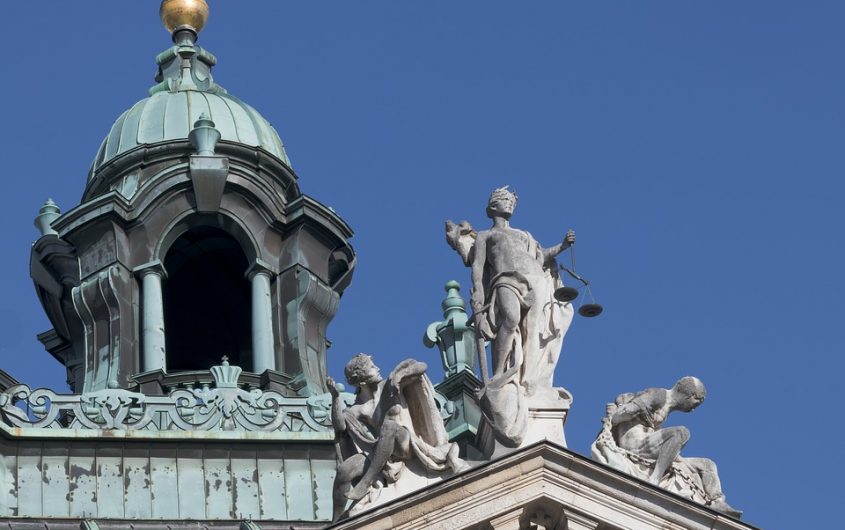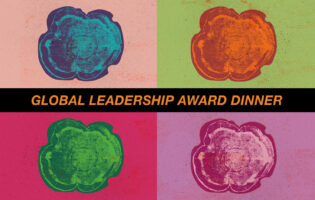
Bavaria Palace Of Justice Munich via Max Pixel
Global Transitional Justice

Nina Tophoff
Research Intern
Nina Tophoff was a research intern at AICGS for the summer of 2019. She conducts research for current projects and for resident fellows, helps organize and document events, manages the database, and operates the front desk at AICGS.
Ms. Tophoff is a rising junior at the Johns Hopkins University, pursuing a double major in International Studies and Economics. Her research interests lie in international trade and trade policy, particularly between the United States and the European Union, as well as issues facing the eurozone.
As a student at Johns Hopkins, she is very involved with the university’s chapter of European Horizons, a student-run think tank that focuses on European politics and transatlantic affairs. In addition, she is a member of the Executive Board of the Alexander Hamilton Society, a non-partisan organization that promotes constructive debate on foreign, economic, and national security policy. She hopes to eventually pursue a career in international diplomacy.
Strategies, Trends, and Counter-Trends across the Atlantic
Seeking justice for past atrocities has become a standard practice for countries after conflict or violent rule. These transitional justice processes are often supported by international organizations and NGOs or through foreign policy efforts of other countries. Both Germany and the United States support transitional justice processes in different parts of the world through the provision of financial means, through exchange and knowledge transfer, and through technical expertise. While Germany is currently developing a new foreign policy strategy on transitional justice, revoking ICC chief prosecutor Fatou Bensouda’s visa could give the impression that the United States is renouncing international justice efforts. On June 4, 2019, AGI/DAAD Research Fellow Dr. Mariam Salehi presented her research on transatlantic transitional justice trends.
- What is transitional justice? Socio-political process during stages of transition in post-conflict/post-authoritarian societies
- Should deal with injustices after violence or repression, bring justice, allow for lasting peace and democracy, and foster social cohesion and reconciliation
- Can be considered as either the process itself or steps that lead to this process
- Two possible starting points:
- When transitional justice started to be done
- Dates to international criminal trials after World War II (e.g., Nuremburg Trials, Tokyo Trials)
- When term “transitional justice” was coined
- Field of transitional justice emerged in late 1980s/early 1990s during period of transition in Latin America and eastern Europe
- Measures that allow for transitional justice include:
- Tools: Trials (domestic, international, hybrid), truth commissions (e.g., South Africa), vetting of government/administration, reparations and compensation, memorials, and public apologies
- Professionalization: development of “justice industry” to support design and implementation of processes and measures that bring transitional justice
- When transitional justice started to be done
Transitional Justice Trends in the United States
- Common assumption that United States is moving away from transitional justice
- Revocation of ICC chief prosecutor Fatou Bensouda’s visa, backlash to human rights
- Transitional justice professionals say that the general trend has not changed much even though the current administration’s priorities have shifted from previous one.
- Professionals have been able to develop long-term mechanisms
- Mainstreaming transitional justice in institutions
- Long-term financing mechanisms
- Powerful allies in Congress
- There is bipartisan support for transitional justice due to national interest, security, support for law and order (especially among Republicans), responsibility to spread American values abroad, and the assumption that “the people” support transitional justice.
- Strongly driven by personalities and networks
- Professionals have been able to develop long-term mechanisms
Transitional Justice Trends in Germany
- Germany’s approach may not fit global paradigm
- More inward-looking: tries to apply own experience to other countries, which may not have same resources or political will
- Not strongly driven by personalities and networks
- Wants to become more involved with foreign policy on transitional justice
- Developing new strategy, not out to public yet
- Not widely known, which suggests that Germany has not been part of global community shaping transitional justice
- Support would come if strategy came with funds and new people/ideas
Discussion
- Paradox between U.S. antipathy to ICC and support for transitional justice
- ICC may be less important to transitional justice now
- German engagements in transitional justice can be counterproductive
- German examples of memory institutions and reparations may not work for others
- May be addressed by new strategy
- Germany can use history as reason for wanting to be involved in transitional justice, but should not make the case for expertise
- Have to address difference between transitional justice and humanitarian intervention
- Tension between transitional justice and politicization will always exist, because transitional justice is inherently political.








